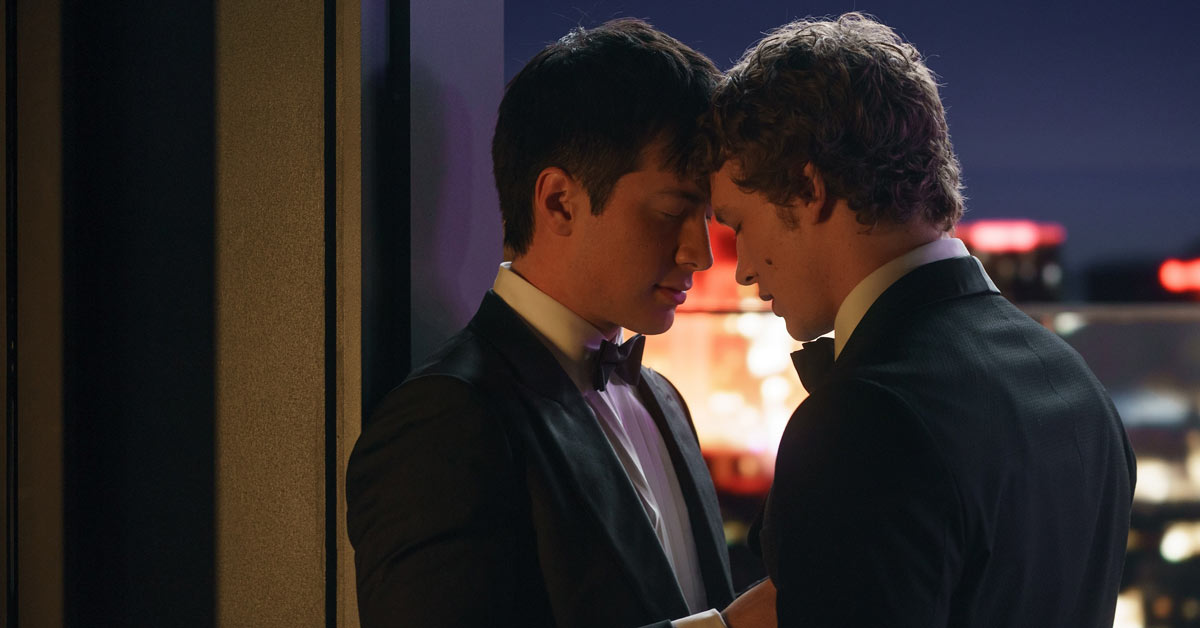“They / Them / Theirs’’ is a set of non-gendered pronouns that are typically used by individuals who are nonbinary (someone who does not identify with the societal concepts of being female or male).
However, this pronoun set — often shortened to “they/them” — is not explicitly synonymous with being nonbinary. “They/them” may also be used by someone who is genderfluid, intersex, gender questioning, undergoing a transition, or an individual who does not identify with any of those descriptions.
Pronouns reflect a person’s present gender identity and may shift with time. Other pronoun sets — such as “he/him,” “she/her,” “she/they,” and “he/they” — express a varied range of masculine, feminine, and non-gendered identities and are personal to the individual who uses them.
It’s important to never assume someone’s pronouns based on their appearance, and if you aren’t sure, you can always ask!
Learn more about gender pronouns: she/her | he/him | they/them | he/they | she/they
Why do people use pronouns?
Pronouns are part of everyday life, and they serve as a conversational shortcut. For example, instead of saying “Riley forgot Riley’s briefcase,” it feels much more natural to say, “They forgot their briefcase.”
In addition to making conversations flow more smoothly, pronouns can also be a source of validation, comfort, and gender euphoria, especially when an individual is transitioning or exploring their gender expression. Even if pronouns do not seem personally important to you, they may mean a lot to someone else.
Can anyone use pronouns?
Contrary to what some people may believe, pronouns do not reflect a person’s sexuality and are not limited to those who identify as a member of the LGBTQ+ community. Everyone has pronouns. Straight and cisgender people are encouraged to share their pronouns too!
If you have a gender neutral name like “Alex,” “Noah,” or “Logan,” you may know the discomfort of having people misgender you by email or over the phone. Openly sharing pronouns can make everyone feel more comfortable.
Have pronouns become more popular lately?
You may have noticed more people sharing pronouns in email signatures, dating profiles, and mid-conversation — as it has become more normalized in the last few decades. But pronouns themselves are nothing new. Singular pronouns like “they” and “them” have been used to refer to a singular individual as early as 1375.
As sharing pronouns becomes more intentional and thoughtful, it becomes easier for everyone to safely express themselves online and in person.
How do I share my pronouns?
Many websites and social media platforms have made it easier for users to display their pronouns in their bios, but they can also be shared casually in conversation.
In fact, it has become common practice for individuals to introduce themselves with their name and pronouns in professional settings (i.e. “I’m Max and I use they/them pronouns” or simply “Max, they/them.”)
What should I do if I call someone by the wrong pronoun?
Upon meeting someone new — or reconnecting with someone you know who has recently changed their pronouns — you might make the mistake of misgendering them by using the wrong pronouns. That’s ok! Everyone makes mistakes.
Instead of feeling terrible and beating yourself up about it, it’s best to quickly apologize and correct yourself before moving the conversation along. Dragging it out with a big apology will only bring more attention to the mistake — just acknowledge the slip up and dive back into the conversation!



